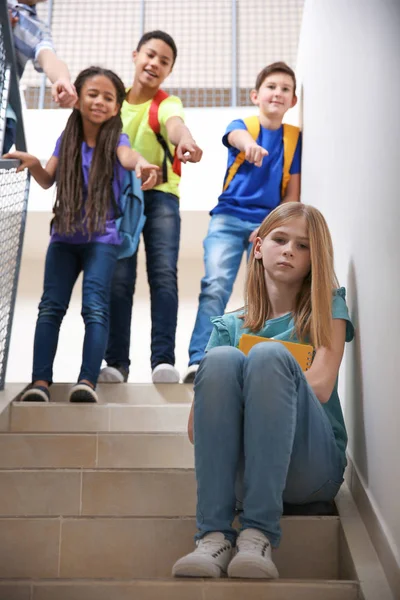
The Long-Term Effects of School Bullying on Mental Health: Unpacking the Silent Struggles
While many individuals believe bullying to be a phase that children will outgrow, the reality is quite different. The shadows cast by bullying can stretch far beyond school years, leading to long-term mental health consequences for the victims. Understanding these effects is crucial for fostering a supportive environment in schools and addressing the invisible scars left by bullying. To begin with, it’s essential to define what bullying entails.
Bullying can manifest in various forms, including physical aggression, verbal taunts, social exclusion, and cyberbullying. Irrespective of the form it takes, the impact on the victim is often profound. Children who are bullied can experience chronic stress, leading to anxiety, depression, and a sense of isolation. It’s not just the immediate effects of bullying that are concerning, but also how these experiences can change a person’s life trajectory.
Research shows that students who endure bullying are at a higher risk for developing mental health disorders. Anxiety is one of the most common outcomes. Victims of bullying may constantly feel on edge, worried about encountering their aggressors or being rejected by their peers. This persistent anxiety can lead to difficulties in concentration, mood swings, and even panic attacks.
As a child transitions into adulthood, these symptoms may continue, making it hard to navigate relationships, employment, and daily activities. Depression is another severe consequence often related to being bullied in school. For many, the emotional pain inflicted by bullying doesn’t simply fade with time. Instead, it can manifest as a long-term mental health issue. Victims might feel worthless or develop a negative self-image, believing the cruel words they heard from their bullies. Such feelings can hinder personal development and establish a cycle of self-doubt that persists well into adulthood. This can lead to an inability to enjoy life or to engage in fulfilling activities, making it challenging to achieve personal or professional goals. Furthermore, bullying can trigger feelings of anger and frustration.
Victims may struggle to process their emotions, leading to outbursts or even aggressive behavior. As they grow older, these unresolved feelings can manifest in unhealthy coping mechanisms such as substance abuse, self-harm, or aggression toward others.

A cycle of violence can emerge, where individuals who have been bullied replicate their experiences by bullying others, perpetuating the issue. The impact of school bullying also extends to social relationships. Those who have faced bullying may find it difficult to trust others, leading to problems in forming friendships and maintaining healthy relationships. They might choose to isolate themselves, fearing further rejection or ridicule. These social withdrawal tendencies can become entrenched over time, leading to loneliness and further mental health complications. People who were bullied often carry their past into adulthood, finding it hard to develop bonds and feeling perpetually on guard. The academic consequences of bullying should not be overlooked either.
Victims often struggle to focus on their studies and may experience a decline in academic performance. The school environment, ideally a space for growth and learning, becomes a battleground for these students, driving them to disengage from their education. This disengagement can lead to dropping out of school or severely limiting their opportunities for higher education and career success, ultimately affecting their financial stability and overall quality of life. It is crucial to recognize that the long-term effects of school bullying are not insurmountable. Early intervention and support can play a significant role in helping victims heal. Schools can cultivate a safer environment by promoting anti-bullying programs and fostering an atmosphere of inclusivity and respect.
Training teachers and staff to recognize the signs of bullying and offering resources for victims can significantly alleviate the mental health burdens carried by affected students. Encouraging open discussions about bullying, mental health, and emotional well-being can empower students to share their experiences and seek help. Moreover, promoting resilience and coping strategies can greatly assist former victims of bullying. Programs that teach mindfulness, emotional regulation, and healthy relationship-building skills can empower students to navigate life’s challenges more effectively. Helping students develop a strong sense of self-worth and belonging can mitigate the effects of past bullying experiences, paving the way for healthier mental states and more fulfilling lives. In summary, the long-term effects of school bullying on mental health can be profound and far-reaching. They include anxiety, depression, trust issues, social withdrawal, and academic challenges.
Understanding the depth of these impacts is vital for educators, parents, and communities. By implementing supportive measures and fostering a safe school environment, we can help break the cycle of bullying and its lasting scars, allowing every child to thrive.
#BullyingAwareness #MentalHealthMatters #StopBullying #SchoolSafety #EmotionalWellBeing #SupportSurvivors #ResilienceInYouth #PreventBullying
